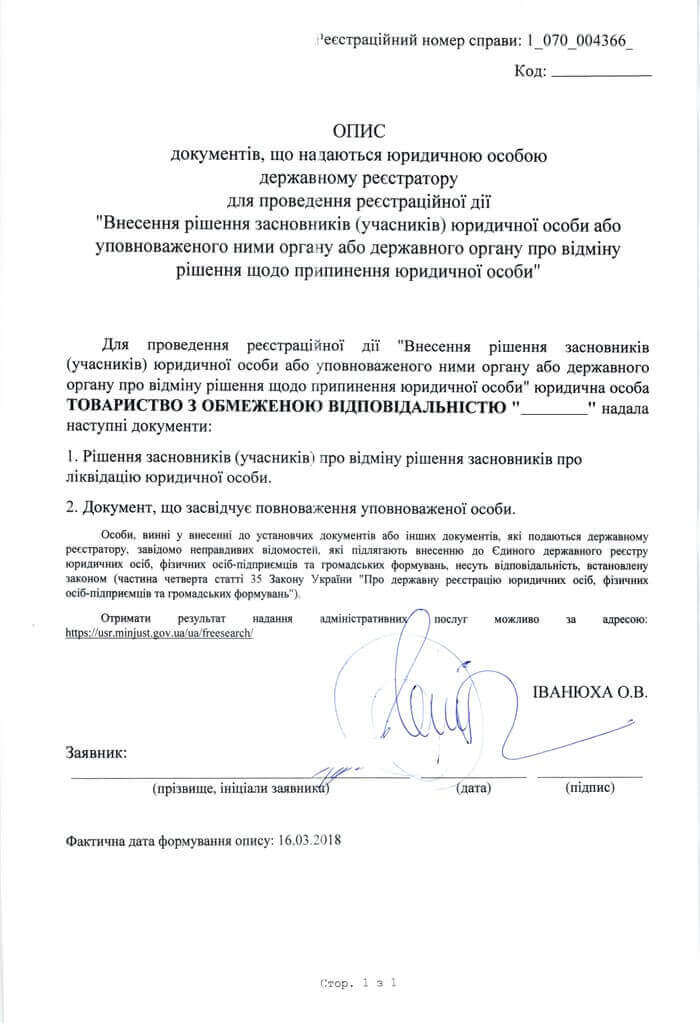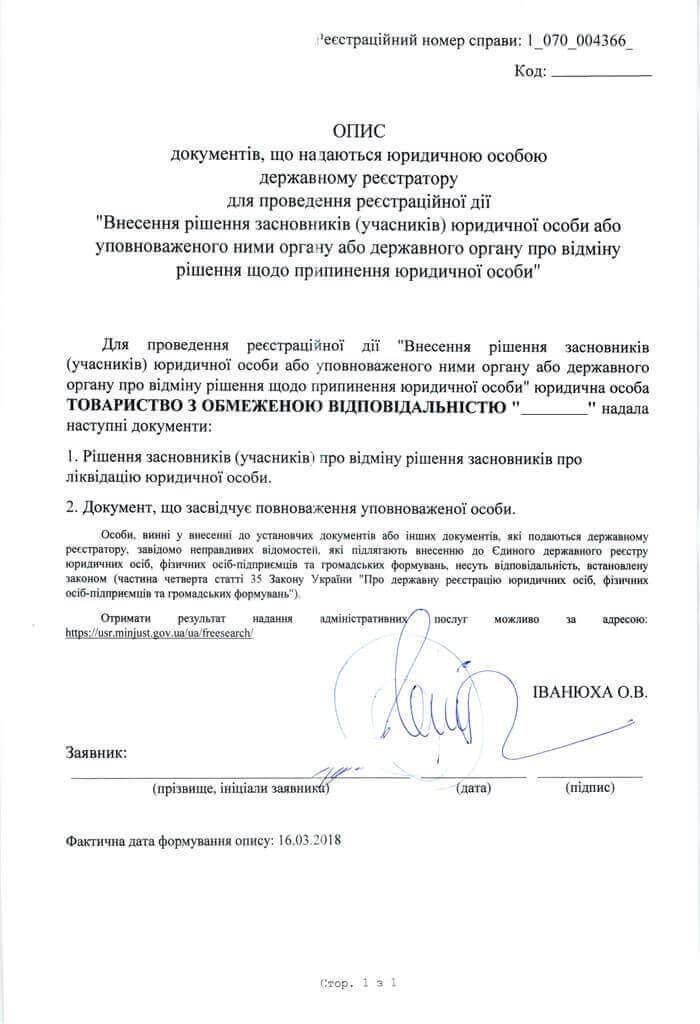Alternative liquidation of a legal entity with a complex structure: LLC and charitable organization
Cost of services:
Reviews of our Clients
... our work on joint projects assured us of your high level of professionalism
In autumn 2023, our long-standing clients, who are owners of multiple companies and charitable organizations, approached us. However, their reason for reaching out was not a pleasant one, as they had decided to withdraw from the Ukrainian market and cease all their operations, including their charitable work. We respected their decision and put in every effort to ensure that the closure of their operations was legally risk-free, avoiding any potential legal issues or unpleasant situations in the future. For example, there might be complications like unsettled vacation pay, unexpected additional financial obligations, etc. It's advisable to formally terminate contracts rather than leave them unresolved.
In this article, we'll share one of the many successful cases we've handled concerning the termination of a legal entity's activities. This specific experience underscores the importance of a qualified approach in dissolving a legal entity with a complex structure, as it's crucial to consider all aspects of the company’s or organization’s activities and conduct a thorough analysis of documents, among other tasks. Our firm's lawyers, unafraid of challenging tasks, are well-prepared to handle complex situations.
You may also like: Handling Company Assets During Liquidation
An Effective Method for the Swift Termination of a Legal Entity's Activities
Closing the operations of charitable organizations and private companies, especially Limited Liability Companies (LLCs), involves distinct processes. In both scenarios, it's crucial to initially resolve all obligations with creditors and other stakeholders. However, while in LLCs, any remaining assets can be proportionally distributed among the shareholders based on their stakes in the company's capital, this method does not apply to charitable foundations. Legislation dictates that any residual assets of a charitable organization must be transferred to another similar non-profit organization. This was exactly the case we encountered.
In this instance, the assets left were minimal, with little to distribute or transfer. Additionally, the traditional liquidation process proved to be time-consuming and costly. We have previously described the classical liquidation procedure for legal entities, particularly in our article: How to Pass an Inspection During a Company's Liquidation in Ukraine. Our experience shows that even appointing someone other than the director, like a lawyer, as the liquidator can still be emotionally challenging for founders until the complete dissolution of the legal entity.
We suggested to our clients an alternative liquidation approach. Essentially, this involved selling off any remaining assets and replacing the members and directors of the charitable organizations with new individuals who would manage future operations. This strategy primarily aimed to disconnect our clients, the former members, and management, from these organizations. Upon understanding the intricacies of this plan, our clients agreed to this alternative approach.
You may also like: Alternative Liquidation of Two LLCs in Ukraine: A Real Case
Liquidation of a Legal Entity with a Complex Structure
In our specific case, the relationships between the companies and charitable organizations were intricately interwoven: one company was the founder of another, which, along with an additional entity, were founders of yet another company or organization. This complexity meant that re-registering all the companies and organizations simultaneously was impractical. We developed a detailed, step-by-step plan and successfully implemented it. Our company took responsibility for all documentation preparation, finding buyers, and handling the signing and re-registration processes. Given that our clients were U.S. citizens, we facilitated the signing of power of attorney, thereby eliminating the need for them to travel to Ukraine.
Aside from managing the legal aspects, it's also crucial to properly conduct the accounting procedures:
- Properly terminate the employment of managers and other staff;
- Calculate and settle any outstanding salaries and vacation pay;
- Prepare handover protocols for primary accounting documents and more.
This is because such issues can re-emerge years later. For example, if the final settlements with a director are incorrectly calculated, the tax authorities might notice this, potentially creating problems for the former director. Therefore, it's advisable to handle everything correctly from the outset to minimize future risks.
Following our carefully planned and executed strategy, we assisted our clients in completely disassociating themselves from their legal entities in Ukraine.
If you face a similar need, do not hesitate to contact our team for detailed cooperation arrangements. We are prepared to provide you with the most optimal solutions for winding down your business in Ukraine. Our services include:
- Analysis of the client's situation and proposing the most efficient liquidation option for the specific case;
- Identifying ways to minimize potential risks during and post the legal entity's liquidation process;
- Addressing all issues related to the liquidation of the legal entity, including:
- Appointment of a liquidation commission;
- Inventory of assets;
- Preparation of the liquidation balance;
- Finalizing employment terminations;
- Arranging for the transfer of assets to another non-profit organization, among others.
For additional information and consultations, contact us, as we are always ready to assist you with your legal needs, no matter how complex.
For more detailed information about the procedures and costs of liquidation, please visit the following links:
Our clients
















